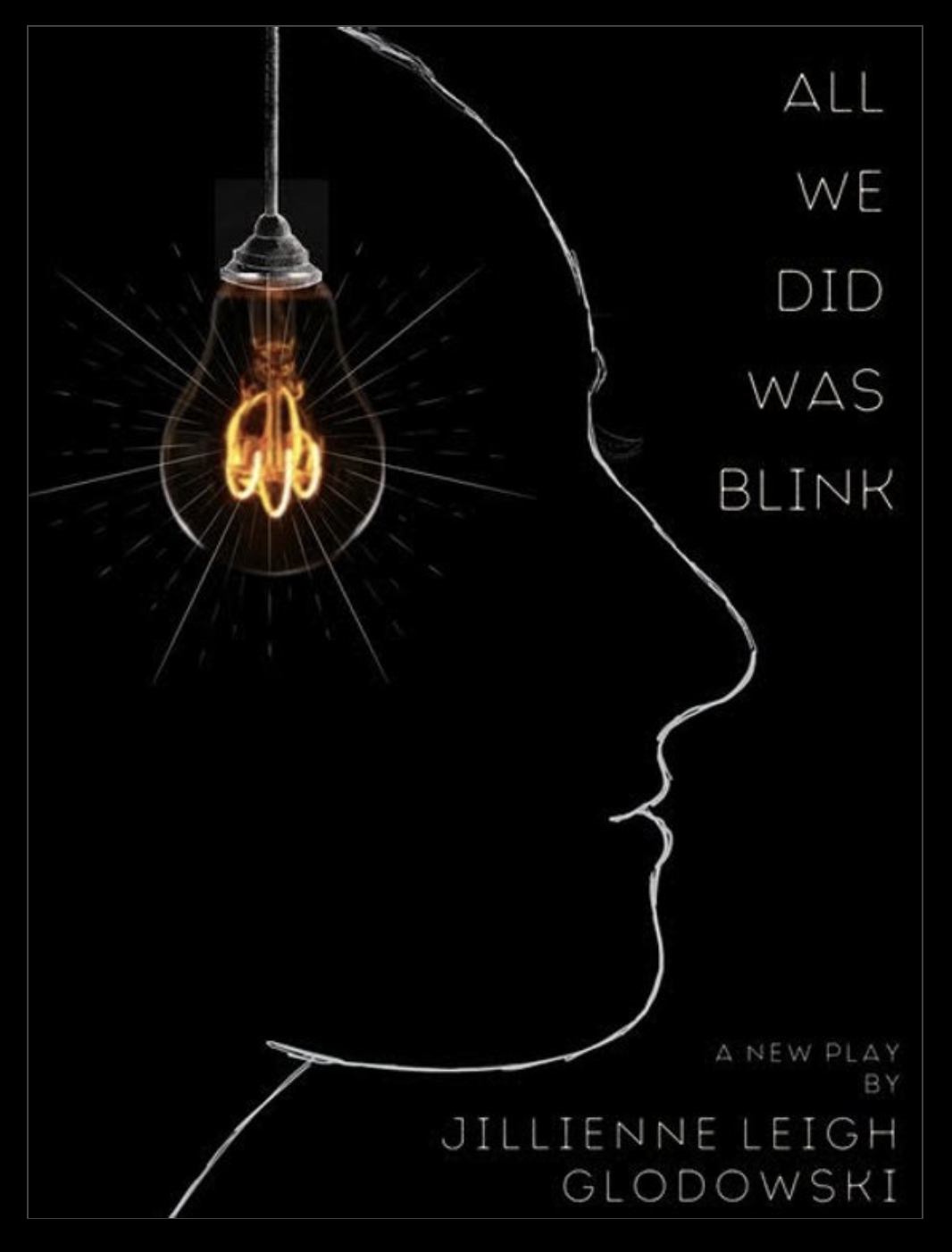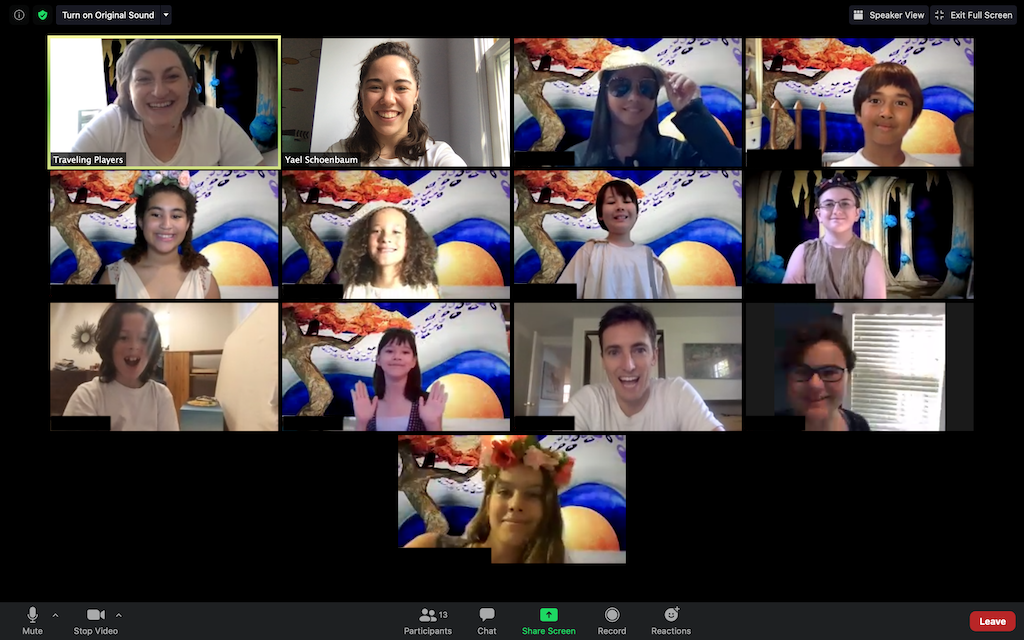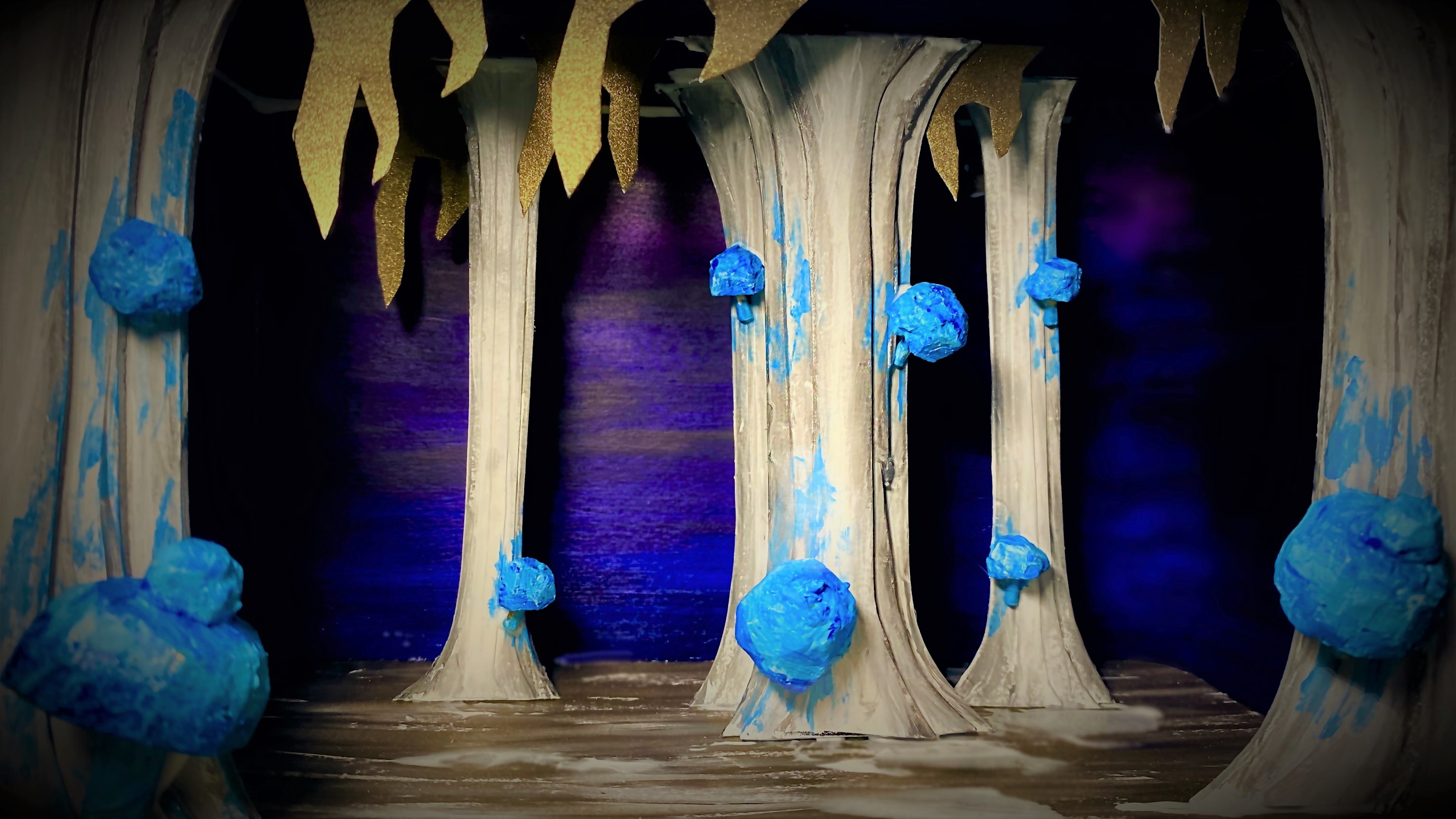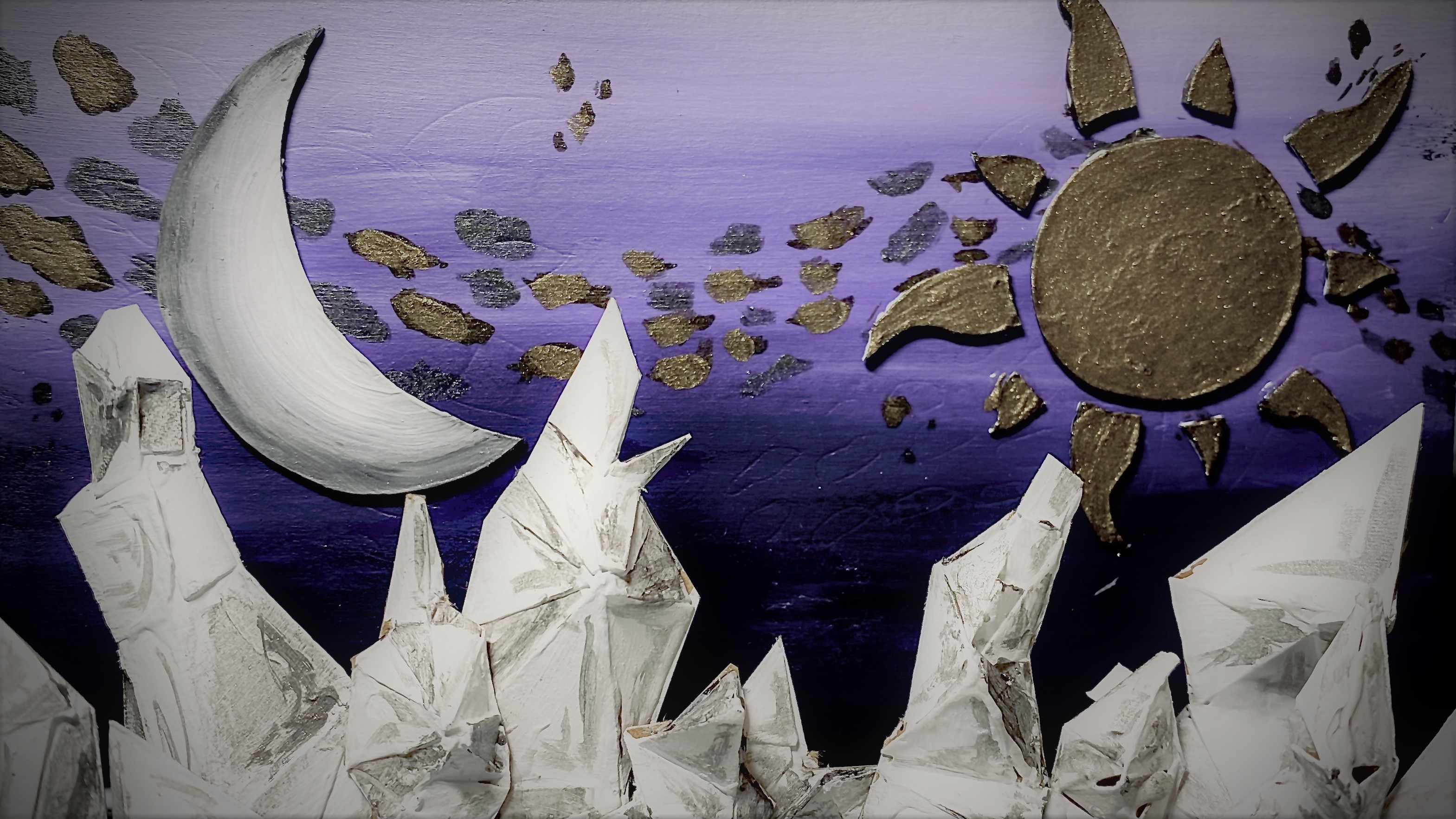The summer of 2020 is now officially over and we think it’s fair to say this was one for the books. From cancelled internships to postponed shows to staying safe during a global pandemic, no one was left unscathed. However, the determination to push ahead and continue to make art despite the circumstances was felt by many students in the Theater Department. What follows is the personal accounts of three students sharing their COVID-summer stories.
ANNIE COX, ’21: YOUTHEATRE (Park City, UT)
Over the summer, I worked as an acting and dance teacher at the YOUTHEATRE program at the Egyptian Theatre in Park City, Utah. This was my second summer in this position, so I was very aware of the differences due to COVID. Due to the changes, there were only 12 of us on staff for the entire summer, including teachers, administrators, and the tech team. We were lucky enough to have our own space, which included classrooms and a Black Box just for YOUTHEATRE, one of the only reasons we were able to do in-person camps in the first place. We followed the COVID protocols set by the YMCA, which included things like having everyone distanced and wearing masks. The kids washed their hands multiple times a day and were not allowed to share any craft supplies. We were constantly sanitizing and, lucky enough, ended up being successful in having zero COVID cases all summer.
This victory did not come without hard work. Some of the most popular phrases of the summer were: “are you six feet apart?” “where’s your mask” and “remember, your mask goes over your mouth AND nose.” It was a constant stream of reinforcing the distancing protocol and reminders for the kids to put on masks.
When I was not reminding children of the COVID rules, I was teaching. I taught dance and acting – usually teaching some sort of musical theater piece or show. I would spend the week teaching kids choreography and blocking their numbers and, at the end of each week, we had a performance. In past years, parents had been invited to the showcase but, due to COVID, we had to film all of the shows and then send the parents a link to watch virtually. For live audience members, we had the kids from our other camps that ran that week distanced in the seats.
One of the most valuable things about this COVID-summer camp was the way it affected the kids. The first day of the first camp, I was overwhelmed with the creativity of these kids. I’d been longing for an artistic outlet during quarantine and it was so heart-warming to be able to provide that environment for young children. I had one student who had, in previous summers, only done our bi-lingual camps. However, this summer she took the bi-lingual camp the first week and then came back every following week for the rest of the summer. She came in each day so eager and excited to have an artistic outlet.
I also used this experience to fulfill my own desire for art. When I was not performing (acting is my typical role in the theater), I was writing scripts for ten-minute children’s plays and creating props and costumes out of random craft supplies. I choreographed upwards of four numbers per week, keeping all of my choreography distanced. The distanced choreography made spacing very difficult but gave way to some funky mask-ography.
This summer gave us all a new set of challenges that we had to adapt to. I am so incredibly grateful I was able to teach in person in a theater this summer. I consistently left work feeling drained, inspired, and artistically fulfilled.

Annie Cox ’21 instructing students from a distance at the YOUTHEATER program.
JILLIENNE LEIGH GLODOWSKI, ’22: ST. LOUIS FRINGE FESTIVAL
Hi. My name is Jillienne Leigh Glodowski and this summer, I turned a play that I wrote into a film and submitted it to the St. Louis Fringe Festival. I was accepted into the festival, virtually directed a cast of 32 actors around the world, did the filming and sound editing for the film, watched as my final product was featured in the festival, won an award for my show, took the longest nap ever, and did it all in the middle of a global pandemic.
So, how the heck did I do it?
Well, I will tell you.
When the pandemic hit and theaters shut down, the loss of our workplace, our home, was felt deeply. Nobody knew what to do. How do we continue to create when our usual platform for creation is not available? Well, one of the most spectacular aspects of theater is that it is always adapting to the times, no matter how difficult that may be. So what could I do? Well, I had written a play titled All We Did Was Blink, which was based on our virtual lives and all of the stories of different people we see glimpses of everyday and how quickly those stories pass us by. Instead of sulking around wishing that my play could see the light of day, I decided to adapt and I turned it into a film. Not being able to be in the room rehearsing with my cast was not what most directors/playwrights would want but I did not dwell on it. The circumstances that were given to me by the pandemic let me have a cast of 30-plus actors (*See credits below), who were working with me from all over the globe – from Australia to the UK to Chicago to North Carolina. Artists who would have never met, never gotten to work together, all of a sudden had the chance to and it was something like magic. Everyone involved contributed absolutely beautiful work that, as a writer, gave me a rare moment of satisfaction and, as a director, made me overwhelmingly proud.
The process stretched from May to August and it included rehearsals, filming sessions and so much film and sound editing that I printed and put up a missing persons poster for my lost sanity. I loved every second of it. In the end, getting to share the final product with not just those who worked with me but many other virtual audience members was a true gift. All We Did Was Blink was awarded one of the few awards of the festival’s season, an honor that wasn’t needed in order to be proud of the work done by everyone but was welcomed with open arms. In these, dare I say, trying times… it is imperative that we continue to create and not let the world coming to a stop, stop us.
*Jillienne acknowledges the work of the following All We Did Was Blink collaborators, most of whom are current or former Skidmore students: Michael Campbell, Patrick Carter ’22, Matt Clyne ’20, Miranda Coble ’19, Spencer Evett ’21, Anna Marie Fama ’21, May Halm ’23, Jonah Harrison ’22, Lily Kops ’22, Mary MacKeen ’23, Izzy Maher ’22, Jessie March ’21, Juliana Moreira ’23, Liliana Mastroianni ’22, Kelven Polite ’22, Tatsu Rivera ’22, Julian Schepis ’22, Gemma Siegler ’22, Dominic Skeele ’22, Rinzin Thonden ’20, Julian Tushabe ’22, Emily Zeller ’22
If you would like to check it out, All We Did Was Blink is still available to view here.

The advertisement poster for All We Did Was Blink – an original play turned into a film, written and directed by Jillienne Leigh Glodowski ’22.
YAEL SCHOENBAUM, ’21: TRAVELING PLAYERS ENSEMBLE (WASHINGTON D.C.)
This summer, I worked with Traveling Players Ensemble (TPE), a non-profit, NEA acclaimed, classical theater summer camp whose slogan is: “Great theater in the great outdoors!” During the first four-week session of camp, I was still finishing online classes from my truncated semester abroad, so I worked part-time as a props and costumes driver. For the second session, I was an Assistant Director for an ensemble of twelve, fourth through sixth graders performing Persephone and the Underworld, a world-premiere children’s play by playwright Judith Walsh White. I also assistant-taught stage combat classes for ours and other ensembles on Zoom for about an hour a day. Our Director was Cassie Murray (MA) and my co-Assistant Director was Vince Eisenson (BA). This directing team made this a particularly special job for me because Cassie Murray was my AD in 2009 when I was a camper at this camp.
During “normal” summers, the camp operates nearly 100% outdoors. There is a costume shop and a scene shop where every kid (grades fourth through twelfth) gets fitted for their very own costumes and props, no matter if the session they’ve signed up for runs for two weeks (“Greek Myths”), four weeks (“Molière”), or seven weeks (“Shakespeare” or “Commedia del Arte”). It’s a fantastic and thorough operation; they make beautiful, ensemble-based, student theater to take on tour in Maryland and Virginia.
This summer, because of COVID-19, it quickly became clear that there would be no feasible way for the camp to run the same way safely, so the decision was made to move to Zoom. The alternative to a virtual summer, canceling the summer altogether, was not just sad and undesirable – if they canceled, the camp may not have been able to financially recover from losing a whole summer of programs. The staff had meetings and workshops for weeks to figure out how best to meet the needs of the campers and their families. Much like with online schooling, predicted pitfalls included: connectivity issues, privacy, duration of focus, providing a safe space amid difficult dynamics at home, cost, keeping energy up, etc. There was also the matter of sets and costumes. As an alternative, our set designer made small-scale models of the sets he’d been designing, took photos of them, and each kid uploaded the photos as their virtual Zoom backdrops – it worked out amazing (see examples below)! And the costume designers worked alone from the costume shop, made each kid costumes and props, and every item was personally driven or mailed to each camper’s home address. This, too, went shockingly well considering the circumstances.
In our Zoom rehearsals of Persephone, the other directors and I ran warmups, games, text analysis, and other activities we felt helped develop the ensemble and the show. Co-counselors of ours from other productions came in for an hour of “class” once a day to teach skills such as dramaturgy, stage combat (for Zoom! It works!), and improv. The session culminated in a Zoom Festival where we broadcast each production live via a Zoom webinar for family and friends to enjoy. We got excellent and grateful feedback from parents and I’m very proud of what we did. It was a hugely positive and rewarding experience during quarantine for me, for many of the same reasons I know it was valuable for the kids: it got me up and moving around, gave me lots of structure, it was fun and collaborative, and it allowed us to make art. I had not worked on theater for most of the year while I was abroad, so I was grateful to have it back in my life and interacting with the kids brought so much energy back into my days, even while sitting at home!

Yael Schoenbaum ’21 (top row, second from left) on Zoom with her group of students working on their virtual performance of “Persephone and the Underworld.”

One of the sets (designed by Jeffrey Hales) that was used by Yael’s students as a Zoom background.

One of the sets (designed by Jeffrey Hales) that was used by Yael’s students as a Zoom background.
***
Curated and edited by Editor-in-Chief of STLN Eliza Kuperschmid ’21.
